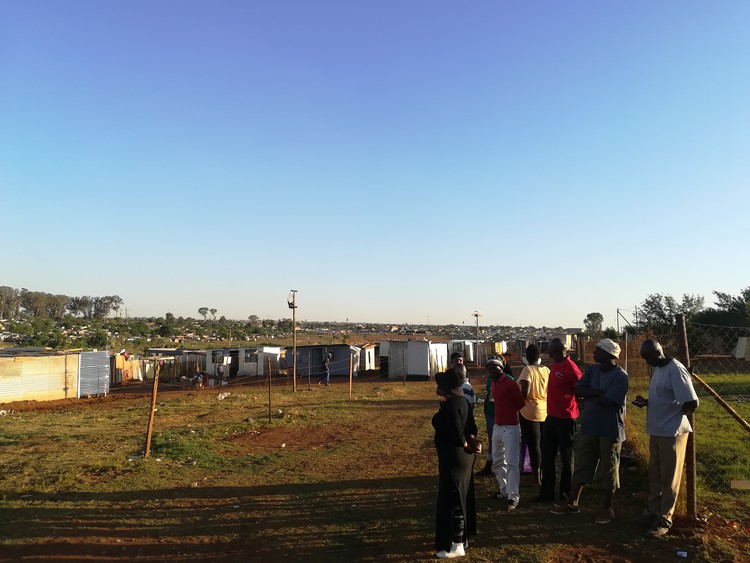Dispute over electrification in Tembisa
Land occupiers say they are being excluded from the project
Occupiers of part of Tswelopele Extension 8 in Tembisa have claimed that they are being excluded from an electrification project in the informal settlement.
Abraham Masheke was part of the land occupation which started in August 2018. About 60 households from surrounding communities, many of them backyarders, moved onto the land because they could no longer afford to pay rent. Most of the occupiers were unemployed and the land had been vacant for over a decade.
Now, Masheke says, households who have been on the land for only three or four months are getting electricity and occupiers who have been there much longer are not. The land is owned by the Ekurhuleni municipality.
Ward councillor Derek Thomson said there were originally 850 shacks on the land, and most of the households had been living there for over 20 years. Another 450 households had moved in from a neighbouring ward, ward 102.
“The ward councillor, the department of human settlements and myself negotiated and agreed to allow 450 shacks from ward 102 to stay on the land because they were experiencing overcrowding and living under electric pylons,” he said.
Thomson said the plan to electrify the informal settlement was developed three years ago, before the 2018 land occupation started. “Now we have people who have been there illegally for 18 months versus people living there for over 20 years, who must take priority?” said Thomson.
A total of about 1,300 shacks were being provided with electricity because they were on the land with the City’s permission, he said.
Thomson said he had agreed to 13 more shacks on the land but the number had increased from 13 to 100 in a week in 2018.
Attempts to evict the occupiers started on the public holiday of 16 December 2018, four months into the occupation. The community, represented by Lawyers for Human Rights, took the municipality to court in May to stop it from evicting them without a court order. The community won the case and the City of Ekurhuleni was ordered to pay each occupier R1,500 for the damage to their property during the evictions.
City of Ekhuruleni spokesperson Nhlanhla Cebekhulu said the City was awaiting reasons for the judgment from the court before deciding on whether to proceed with evicting the occupiers or not.
He told GroundUp that the City, the human settlements department and the ward councillors had been working together to electrify the informal settlement. The electrification project was part of a larger project to reblock the area, he said.
“The informal settlements that are not in our plans for re-blocking and electrification phase one are the recent shacks erected after the plans for phase one were approved,” Cebekhulu told GroundUp.
He said the 450 households moved onto the land had been moved with agreement from both ward councillors and their community leaders.
Support independent journalism
Donate using Payfast

Don't miss out on the latest news
We respect your privacy, and promise we won't spam you.
Next: Thieves steal children’s musical instruments from Khayelitsha school
Previous: Social Development asks for extension to clear foster care grant backlog
© 2019 GroundUp.
This article is licensed under a Creative Commons Attribution-NoDerivatives 4.0 International License.
You may republish this article, so long as you credit the authors and GroundUp, and do not change the text. Please include a link back to the original article.

